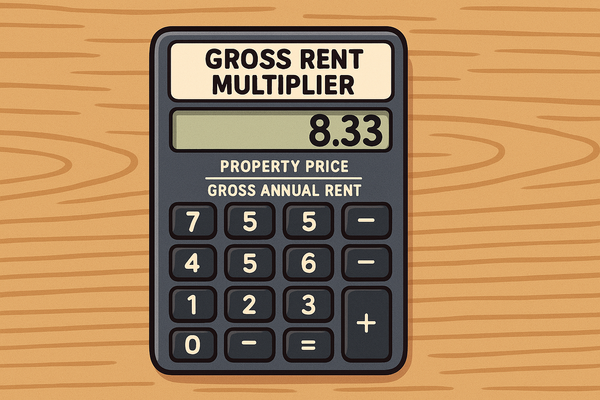Michigan Squatters Rights Guide: Adverse Possession Rights & Processes
Penalties for illegal self-help evictions in Michigan can include liability for the squatter's actual damages plus $200 in statutory damages.

Squatting in Michigan is a more common problem than many realize. In 2024, State Representative Ken Borton introduced legislation specifically to combat the rise in squatting incidents across Michigan, highlighting the growing concern among property owners.
This guide will help Michigan homeowners (and landowners) understand the complex legal landscape surrounding squatters rights and adverse possession laws.
Squatters vs Trespassers: The Difference
In Michigan, there's an important distinction between squatters and trespassers.
Trespassing is a criminal offense that involves entering property without permission.
Squatting typically involves a person living on a property for an extended period without authorization.
While immediate trespassing can be addressed by police, long-term squatting often requires civil court proceedings to resolve.
The Original Intent of Adverse Possession Laws in Michigan
The historical purpose of adverse possession laws was to ensure productive use of land, prevent abandonment, and resolve boundary disputes. Today, these laws create situations where property owners must be vigilant about monitoring their vacant properties.
Squatter Snippet: Real Case from Michigan
In 2014, Detroit homeowner Sarah Hamilton found herself in an unimaginable situation. She discovered that a squatter named Lynn Williams had moved into her home without permission. When Hamilton confronted Williams about the unauthorized occupation, the situation escalated dramatically. During one confrontation, Hamilton allegedly tried to run Williams down with her car after the squatter refused to vacate the premises. Shockingly, Hamilton was arrested and sent to jail, while Williams was permitted to move back into the disputed property.
The case gained national attention when investigative reporter Charlie LeDuff decided to "squat on the squatter." With permission and keys from Hamilton, LeDuff approached the house wearing a bathrobe and carrying the property deed. With cameras rolling, he confronted Williams, creating a viral moment that highlighted the frustration many Michigan property owners face when dealing with squatters. The video has since garnered over 18 million views, demonstrating public interest in this complex property rights issue.
Key Timeline: Statutory Period in Michigan
- Required occupation period: 15 years in Michigan under standard circumstances
- Alternative period: 10 years if the squatter pays property taxes AND has color of title
- Continuous possession requirement: Occupation must be without significant gaps
- Comparison with neighboring states:
- Minnesota: 15 years (requires tax payments for at least 5 consecutive years)
- Kentucky: 15 years
- Ohio: Similar framework to Michigan
- Pennsylvania: Similar framework to Michigan
Adverse Possession Timeline Comparison
| State | Required Years | Special Conditions |
|---|---|---|
| Michigan | 15 years (10 with color of title) | Must pay property taxes for 10-year claim |
| Minnesota | 15 years | Must pay taxes for 5 consecutive years |
| Kentucky | 15 years | No special requirements |
| California | 5 years | Must pay property taxes |
| Louisiana | 30 years (10 with color of title) | Must pay property taxes for 10-year claim |
Quick Guide for Property Owners
Did you know that in June 2024, Senator Joseph Bellino introduced Senate Bill 909 to streamline squatter removal in Michigan? This legislation would allow property owners to file complaints directly with their county sheriff, bypassing potentially lengthy court proceedings.
The bill represents a recognition that while squatting is already illegal in Michigan, property owners have faced difficulties efficiently removing trespassers due to procedural complexities.
Here is a quick guide on adverse possession in Michigan as it stands today:
- Know your timeline: Squatters can claim rights after 15 years of continuous occupation (10 years with color of title and tax payments)
- Documentation matters: Keep property records, tax receipts, and inspection logs
- Regular monitoring required: Vacant properties are most vulnerable to potential squatters
- Legal obligation: Self-help eviction methods are illegal in Michigan
- Act quickly: The longer squatters remain, the stronger their potential adverse possession claim
- Proper notices: Follow legal procedures when removing unauthorized occupants
Prevention: Protecting Your Property
In Michigan, courts take evidence of property monitoring and security measures seriously when evaluating adverse possession claims. According to data from the Rental Property Owners Association of Kent County, properties that are regularly monitored and maintained are significantly less likely to be targeted by squatters.
Michigan's courts consistently rule in favor of legal owners who can demonstrate active management of their properties.
The most common entry points for squatters in Michigan include unsecured doors and windows, particularly in properties that appear abandoned or neglected. Organizations like the Michigan Municipal League recommend comprehensive security measures as the first line of defense against unauthorized occupants.
- Regular inspections:
- Visit property at least monthly
- Document each visit with dated photos
- Effective security measures:
- Secure all entry points
- Consider alarm systems
- Install motion-activated lighting
- Clear signage:
- Post "No Trespassing" signs visibly
- Mark property boundaries clearly
- Property management options:
- Hire professional property management for vacant properties
- Consider rental options for long-term vacancies
- Documentation practices:
- Keep tax payment records
- Maintain utility connections
- Take dated photographs regularly
Property Risk Assessment Matrix
| Property Type | Risk Level | Recommended Prevention | Estimated Cost |
|---|---|---|---|
| Vacant Land | High | Fencing, signage, monthly inspections | $1,000-$5,000 |
| Abandoned Building | Very High | Board up, security system, weekly checks | $2,000-$10,000 |
| Seasonal Property | Medium | Alarm system, property manager, cameras | $1,500-$4,000 |
| Investment Property | Medium | Regular maintenance, tenant screening, security | $1,000-$3,000 |
Removing Squatters: Step-by-Step Process
In Michigan, the legal process for removing squatters requires following specific steps. Under Michigan law (MCL 600.2918), self-help evictions are illegal, and property owners must use judicial processes. Unlike some neighboring states, Michigan does not have an expedited process specifically for squatters, though pending legislation may change this.
The Michigan Court of Appeals has consistently held that property owners must follow proper eviction procedures even when dealing with individuals who initially entered as trespassers. Penalties for illegal self-help evictions in Michigan can include liability for the squatter's actual damages plus $200 in statutory damages.
- Document the situation:
- Take photos/video of occupation
- Gather ownership documents
- Issue proper written notice to vacate:
- 7-day notice is standard for squatters
- File appropriate legal complaint:
- Wrongful detainer action in Michigan District Court
- Include all required documentation
- Attend court hearing
- If successful, obtain order of restitution/eviction
- Sheriff enforces removal, not property owner
- What NOT to do:
- Do not change locks yourself
- Do not shut off utilities
- Do not remove squatter's belongings
- Do not threaten or intimidate
- Do not use physical force
- Timeline expectations:
- Notice period: 7 days
- Court processing: 3-8 weeks
- Eviction enforcement: 3-10 days after judgment
Eviction Process Timeline
Michigan's eviction process is governed by the Summary Proceedings Act (Act 236 of 1961), which establishes specific waiting periods between each step. According to data from Grand Rapids District Court, the average eviction case in Michigan takes approximately 4-6 weeks from initial filing to enforcement, assuming no appeals or complications. The Michigan Court Rules (MCR 4.201) detail specific timelines that courts must follow in eviction proceedings.
[Discovery of Squatter] → [Documentation: 1-2 days] → [Notice to Vacate: 7 days] →
[Court Filing: 1 day] → [Waiting for Hearing: 10-30 days] → [Court Hearing: 1 day] →
[If successful, Wait for Order: 1-7 days] → [Sheriff Enforcement: 3-10 days] → [Property Returned]
Total estimated timeline: 3-8 weeks
Legal Requirements for Adverse Possession
In Michigan, the courts apply the "OCEAN" criteria (Open, Continuous, Exclusive, Adverse, Notorious) when evaluating adverse possession claims. The Michigan Supreme Court has consistently held that all elements must be proven by "clear and cogent" evidence, which is a higher standard than the usual civil "preponderance of evidence" standard.
Key Michigan cases like Wengel v. Wengel (1995) and Beach v. Township of Lima (2001) have shaped the interpretation of these elements, emphasizing that casual or sporadic use of property is insufficient for adverse possession claims. The burden of proof in Michigan adverse possession cases falls entirely on the person claiming adverse possession, not on the legal owner.
- Hostile/Adverse Claim
- The occupant must possess the property without the owner's permission
- Michigan case law establishes that using property with permission never qualifies as hostile
- Common misunderstanding: Many squatters incorrectly believe that having mail delivered establishes legal rights
- Actual Possession
- Physical occupation and use of the property as an owner would
- Courts look for evidence of maintenance, improvements, and utility connections
- Open and Notorious Possession
- Occupation must be visible and obvious to the community
- Courts consider whether a reasonable owner would notice the occupation
- Exclusive Possession
- The squatter must possess the property exclusively, not sharing with others including the owner
- Allowing others to use the property may defeat this element
- Continuous Possession
- 15 years of uninterrupted occupation (10 years with color of title and tax payments)
- Brief absences may be permitted if consistent with how an owner would use the property
- Military service, incarceration, or legal incompetence can affect this timeline
Adverse Possession Requirements Matrix
| Requirement | Required in Michigan | Evidence Courts Accept | Common Pitfalls |
|---|---|---|---|
| Hostile Claim | Yes | No permission documents, breaking locks, paying utilities | Having owner's permission, recognition of true owner |
| Actual Possession | Yes | Improvements, maintenance, living there, paying utilities | Only occasional visits, minimal interaction |
| Open & Notorious | Yes | Visible use, neighborhood testimony, postal address | Hidden or secretive occupation |
| Exclusive | Yes | Sole control of property, excluding others | Sharing with others, owner still using property |
| Continuous | Yes | 15 years of records, testimony, dated photos | Significant gaps in occupation, temporary use |
Frequently Asked Questions
- "Can I remove squatters myself in Michigan?"
- No, self-help eviction is illegal in Michigan
- Property owners must follow legal eviction process
- Violating this can result in liability for damages plus statutory penalties
- "Do squatters have to pay property taxes in Michigan?"
- Tax payment strengthens adverse possession claim
- Required for the shortened 10-year adverse possession period
- Not required for standard 15-year adverse possession period
- "What's the difference between a squatter and a trespasser in Michigan?"
- Trespassers: Short-term unauthorized presence, typically addressed by police
- Squatters: Ongoing occupation with potential adverse possession claim, typically requires civil proceedings
- "Who should I contact first - police or sheriff?"
- For immediate safety concerns: Police
- For eviction enforcement: Sheriff
- For recent entry (less than 24 hours): Police
- "Can squatters claim abandoned property in Michigan?"
- Yes, if all adverse possession requirements are met over 15 years
- Abandonment may strengthen their claim
- Heir property (inherited property with multiple owners) is particularly vulnerable
- "How quickly can I evict a squatter in Michigan?"
- Typical timeline: 3-8 weeks
- Factors affecting timeline: court schedule, evidence quality, appeals
- Pending legislation may create expedited processes in the future
Decision Tree for Property Owners
Michigan's specific laws create an important framework for decision-making when encountering unauthorized occupants. Under Michigan criminal law, trespassing is a misdemeanor offense, while squatting falls into a civil matter after 24 hours of occupation. The Michigan State Police recommend specific protocols based on how long an unauthorized occupant has been present. Local law enforcement agencies in counties like Kent County have specific guidelines for handling these situations.
Discovered Someone on Your Property
├── Emergency/Dangerous Situation? → Yes → Call Police
│ └── No ↓
├── Recent Entry (Less than 24 hours)? → Yes → Call Police (Trespasser)
│ └── No ↓
├── Evidence of Established Occupation? → Yes → Legal Eviction Process Required
│ └── No ↓
└── Uncertain Situation → Consult Attorney Before Taking Action
Recent Legislative Developments in Michigan
In June 2024, Senator Joseph Bellino introduced Senate Bill 909, which addresses significant gaps in current squatter enforcement processes. The bill would streamline squatter removal by allowing property owners to file complaints directly with their county sheriff, bypassing potentially lengthy court proceedings.
Earlier, in January 2024, State Representative Ken Borton introduced legislation to create additional protections for property owners facing squatter situations. House Bill 4713, part of a package of bills addressing housing issues, would create an expedited process for removing individuals who cannot provide proof of legal right to occupy a property.
These legislative efforts reflect growing concerns about property rights in Michigan communities. According to Courtney Bennett of the Rental Property Owners Association of Kent County, squatting incidents have increased by approximately 15% in Grand Rapids alone since 2022.
- Recently Passed Laws:
- Pending Senate Bill 909: Would create expedited sheriff removal process
- Impact on property owners: Would significantly reduce time to remove squatters
- Effective date: Expected later in 2025 if passed
- Pending Legislation:
- House Bill 4713: Currently in House Committee
- Proposed changes: Expedited removal process, higher criminal penalties
- Expected vote: Fall 2025
- Legislative Trends:
- Michigan is following national trends toward stronger property owner protections
- Emphasis on balancing property rights with housing stability concerns
- Growing recognition of challenges facing owners of vacant properties
Michigan-Specific Considerations
- Color of Title in Michigan:
- Definition: Documentation suggesting ownership, though legally defective
- Impact on statutory period: Reduces required time from 15 to 10 years (with tax payments)
- Documentation requirements: Must be written instrument purporting to transfer title
- Burden of proof requirements:
- Squatter must prove all elements of adverse possession
- Michigan courts require "clear and cogent" evidence
- Higher standard than typical civil cases
- Recent legal developments:
- Pending legislation addressing squatter removal
- Increased attention to property rights protections
- Greater law enforcement awareness of squatter issues
- How Michigan differs from neighboring states:
- Michigan's 15-year period is average among Midwestern states
- Michigan requires "clear and cogent" evidence, a higher standard than some states
- Michigan has more stringent requirements than states like California (5 years)
Michigan vs. Neighboring States Comparison
| Factor | Michigan | Minnesota | Ohio | Kentucky | California |
|---|---|---|---|---|---|
| Statutory Period | 15 years (10 with color of title) | 15 years | Similar to MI | 15 years | 5 years |
| Color of Title Impact | Reduces to 10 years with taxes | Little impact | Moderate impact | Minimal impact | Significant impact |
| Tax Payment Required | Yes for 10-year claim | Yes for 5 years | Sometimes | No | Yes |
| Special Conditions | Payment of taxes for shortened period | Tax payment | Similar to MI | None | Tax payment |
| Strictness Rating | 3.5/5 | 3/5 | 3/5 | 3.5/5 | 1/5 |
Advanced Legal Process
Court Proceedings in Detail
In Michigan, eviction proceedings for squatters typically begin in District Court. The process requires filing a complaint for recovery of possession under MCL 600.5714. Both parties will have an opportunity to present evidence at a hearing, typically scheduled within 10-30 days of filing.
Evidence Requirements
Michigan courts require property owners to provide clear documentation of ownership, such as deed records, property tax statements, and mortgage documents. Squatters claiming adverse possession must provide evidence supporting all elements of their claim, including documentation of continuous occupation for the statutory period.
Potential Outcomes and Appeals
If the court rules in favor of the property owner, a judgment for possession will be issued. The squatter will typically have 10 days to appeal before an order of eviction is executed by the sheriff. Appeals are filed with the Circuit Court and can extend the process by several months.
Monetary Judgments and Damages
Property owners can also seek monetary damages for unpaid rent, property damage, and court costs. Under Michigan law, if a squatter is found to have acted in bad faith, the court may award additional damages.
Impact on Property Title
Successful adverse possession claims result in a legal transfer of title. Property owners should consider title insurance to protect against potential adverse possession claims, particularly for properties that have been vacant for extended periods.
Special Provisions for Legally Incompetent Individuals
Michigan law provides special protections for property owners who are legally incompetent. Under MCL 600.5851, the statutory period for adverse possession does not run against minors or individuals declared mentally incompetent until after the disability is removed.
Real-World Examples
Case Study 1: Demarko Smith's Neighboring Nightmare
Demarko Smith, a Michigan resident, endured a three-year ordeal when squatters occupied the property next to his Dowagiac home. The squatters engaged in suspected drug activity, creating such potent chemical smells that Smith's family sometimes couldn't use their backyard. After eight fire department responses and investing $4,500 in security measures, Smith offered $15,000 for the damaged property—not to restore it, but to "tear it down and have the property." This case highlights how squatter situations can impact entire neighborhoods.
Case Study 2: Charlie LeDuff's Unconventional Intervention
In perhaps Michigan's most famous squatter case, investigative reporter Charlie LeDuff "squatted on the squatter" to help homeowner Sarah Hamilton reclaim her Detroit property. With cameras rolling, LeDuff arrived at the house in a bathrobe, carrying the property deed, and declared his intention to move in. The squatter, Lynn Williams (legally named Arthur Williams Jr.), was on probation for a felony assault conviction and admitted to stealing power from a neighboring house. The confrontation ended when police took Williams into custody, likely for probation violation. The video documentation went viral, accumulating millions of views and highlighting the frustrations property owners face when dealing with squatters.
Case Study 3: Heir Property Vulnerability
In a 2022 case from northern Michigan, a family discovered squatters had occupied their vacation cabin, which had become heir property after the original owner's death. With multiple family members having partial ownership, communication and decision-making had lapsed, leaving the property vulnerable. The squatters had been present for nearly two years before being discovered, creating a complicated legal situation that required months to resolve. This case highlights the particular vulnerability of heir property to adverse possession claims.
Resources
- Current Michigan Squatters Rights Laws:
- Michigan Legal Help - Understanding Eviction
- Last updated: January 2025
- Recent/Pending Legislation:
- Michigan Legislature - Senate Bill 909
- Bill status: In committee
- Legal Services:
Legal Disclaimer
DISCLAIMER: The information provided in this guide is for general informational purposes only and should not be construed as legal advice on any subject matter. The content contained herein does not establish an attorney-client relationship.
This guide about Michigan squatters' rights and adverse possession laws is intended to provide general information and should not be relied upon as legal advice. Laws and regulations regarding property rights, adverse possession, and eviction procedures vary by jurisdiction and may change over time. The information presented here may not reflect the most current legal developments or address your specific situation.
No reader should act or refrain from acting based on information in this guide without first seeking professional legal advice. Property owners dealing with squatters should consult with a qualified attorney licensed to practice in Michigan for advice tailored to their particular circumstances.
The authors, publishers, and distributors of this guide expressly disclaim all liability in respect to actions taken or not taken based on any or all of the contents of this document. They shall not be responsible for any errors or omissions in this information or any consequences arising from its use.
This guide is provided "as is" without warranty of any kind, either express or implied, including but not limited to implied warranties of merchantability, fitness for a particular purpose, or non-infringement.
Copyright © 2025. All rights reserved.





